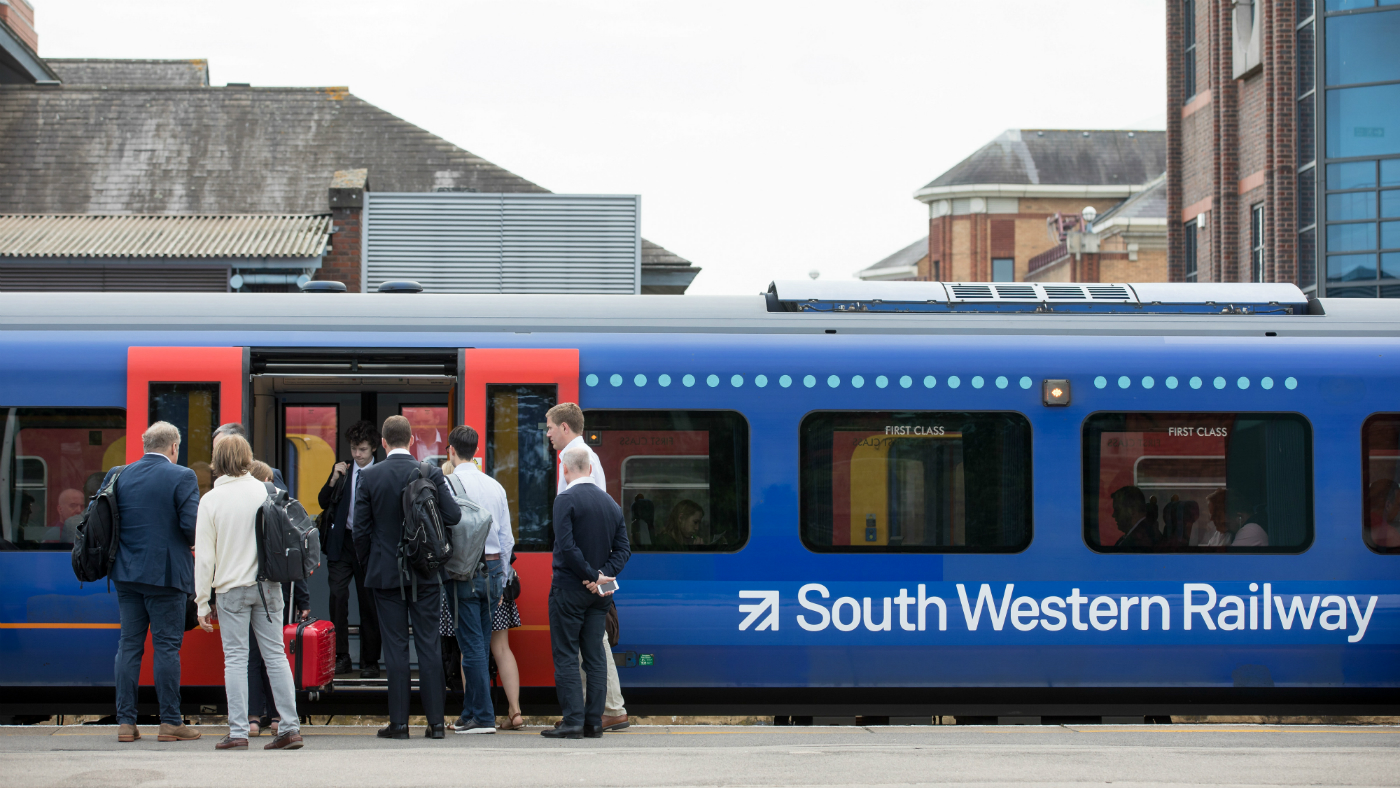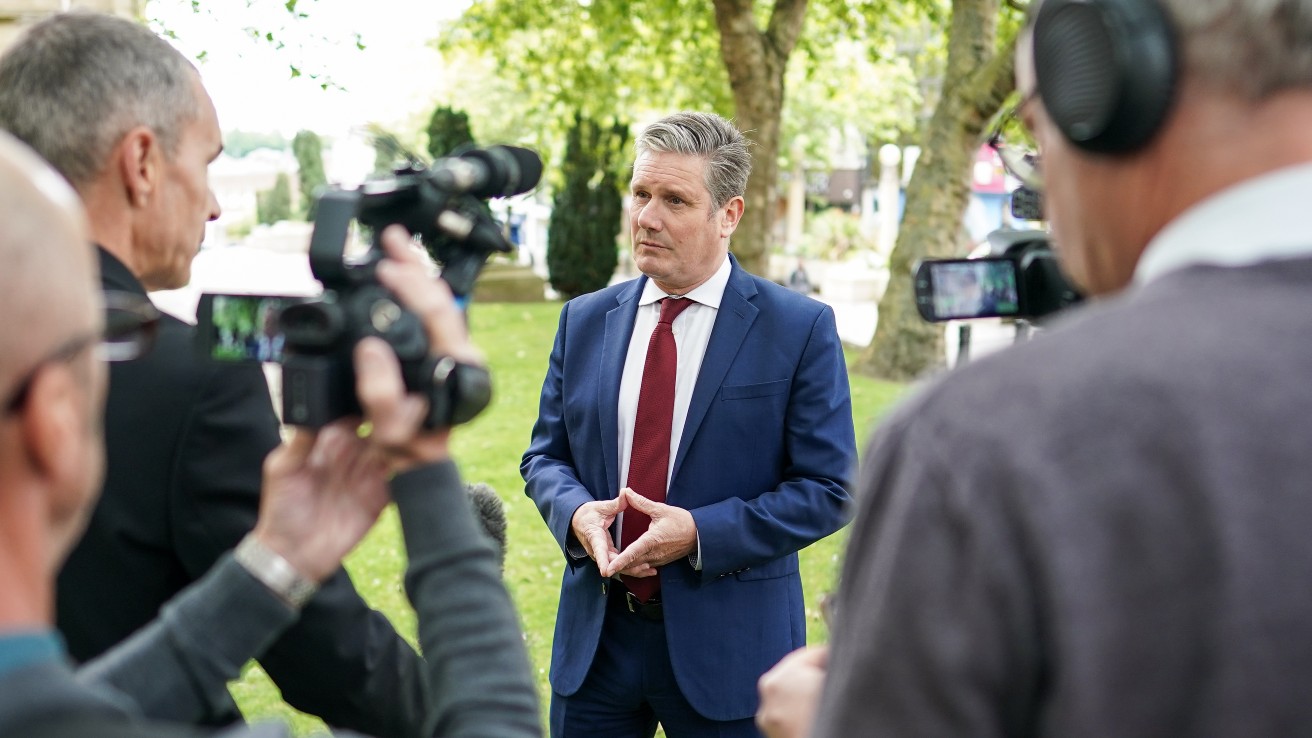Why are UK rail fares so expensive?
Protests at rail stations as anger grows over ‘disgraceful’ 3.1% fare rise

A free daily email with the biggest news stories of the day – and the best features from TheWeek.com
You are now subscribed
Your newsletter sign-up was successful
New rail fare rises that come into force today have been described as a “kick in the wallet” by campaigners.
Train ticket prices in England and Wales increase by an average of 3.1%, while fares in Scotland are up by almost 3%. The rises meant the price of some annual tickets have gone up by more than £200 this morning.
The hikes come despite months of disruption that have seen delays across the network soar to their highest level in 13 years.
The Week
Escape your echo chamber. Get the facts behind the news, plus analysis from multiple perspectives.

Sign up for The Week's Free Newsletters
From our morning news briefing to a weekly Good News Newsletter, get the best of The Week delivered directly to your inbox.
From our morning news briefing to a weekly Good News Newsletter, get the best of The Week delivered directly to your inbox.
The Times points out that fares have risen by 36% since 2010 - 2.6 times more than the increase in average earnings.
Joining demonstrators outside King's Cross station in London, Labour leader Jeremy Corbyn branded the rail fare increases a “disgrace”.
Rail, Maritime and Transport union general secretary Mick Cash said fare payers are being “battered by the toxic combination of gross mismanagement and profiteering”.
Campaign group Railfuture described the price hikes as “yet another kick in the wallet”, while RMT national president Michelle Rodgers noted that they follow an “abysmal” year for train passengers.
A free daily email with the biggest news stories of the day – and the best features from TheWeek.com
However, Transport Secretary Chris Grayling blamed unions for the delays and said the Government had made a “record investment” in rail transport.
The rail industry insists that 98p of every pound spent on tickets is invested back into the network.
Rail Delivery Group chief executive Paul Plummer has defended rising fares, saying: “Money from fares is underpinning the improvements to the railway that passengers want and which ultimately help boost the wider economy.
“That means more seats, extra services and better connections right across the country.”
A report commissioned by Vouchercloud revealed that Britons pay 54p per mile to use the rail network, making it the second-most expensive nation in Europe for rail travel, after Norway.
Privatisation has played a huge part in the high fares. Yahoo! News reports that since the privatisation of British Rail – which took place between 1994 and 1997 – ticket prices have “rocketed by 22%, with walk-on prices on some routes up by an eye-watering 245%” by 2016.
Critics claim imbalanced government subsidy distribution has also harmed performance on the network.
A study by think-tank IPPR North found more than half of the UK’s total spending on transport networks is invested in London. An estimated £1,943 is spent per person in the English capital on current or planned projects, compared with just £427 in the North.
-
 How the FCC’s ‘equal time’ rule works
How the FCC’s ‘equal time’ rule worksIn the Spotlight The law is at the heart of the Colbert-CBS conflict
-
 What is the endgame in the DHS shutdown?
What is the endgame in the DHS shutdown?Today’s Big Question Democrats want to rein in ICE’s immigration crackdown
-
 ‘Poor time management isn’t just an inconvenience’
‘Poor time management isn’t just an inconvenience’Instant Opinion Opinion, comment and editorials of the day
-
 ‘Labour’s incoherent response to the rail strikes has profound implications’
‘Labour’s incoherent response to the rail strikes has profound implications’Instant Opinion Your digest of analysis from the British and international press
-
 Home Office worker accused of spiking mistress’s drink with abortion drug
Home Office worker accused of spiking mistress’s drink with abortion drugSpeed Read Darren Burke had failed to convince his girlfriend to terminate pregnancy
-
 In hock to Moscow: exploring Germany’s woeful energy policy
In hock to Moscow: exploring Germany’s woeful energy policySpeed Read Don’t expect Berlin to wean itself off Russian gas any time soon
-
 Were Covid restrictions dropped too soon?
Were Covid restrictions dropped too soon?Speed Read ‘Living with Covid’ is already proving problematic – just look at the travel chaos this week
-
 Inclusive Britain: a new strategy for tackling racism in the UK
Inclusive Britain: a new strategy for tackling racism in the UKSpeed Read Government has revealed action plan setting out 74 steps that ministers will take
-
 Sandy Hook families vs. Remington: a small victory over the gunmakers
Sandy Hook families vs. Remington: a small victory over the gunmakersSpeed Read Last week the families settled a lawsuit for $73m against the manufacturer
-
 Farmers vs. walkers: the battle over ‘Britain’s green and pleasant land’
Farmers vs. walkers: the battle over ‘Britain’s green and pleasant land’Speed Read Updated Countryside Code tells farmers: ‘be nice, say hello, share the space’
-
 Motherhood: why are we putting it off?
Motherhood: why are we putting it off?Speed Read Stats show around 50% of women in England and Wales now don’t have children by 30